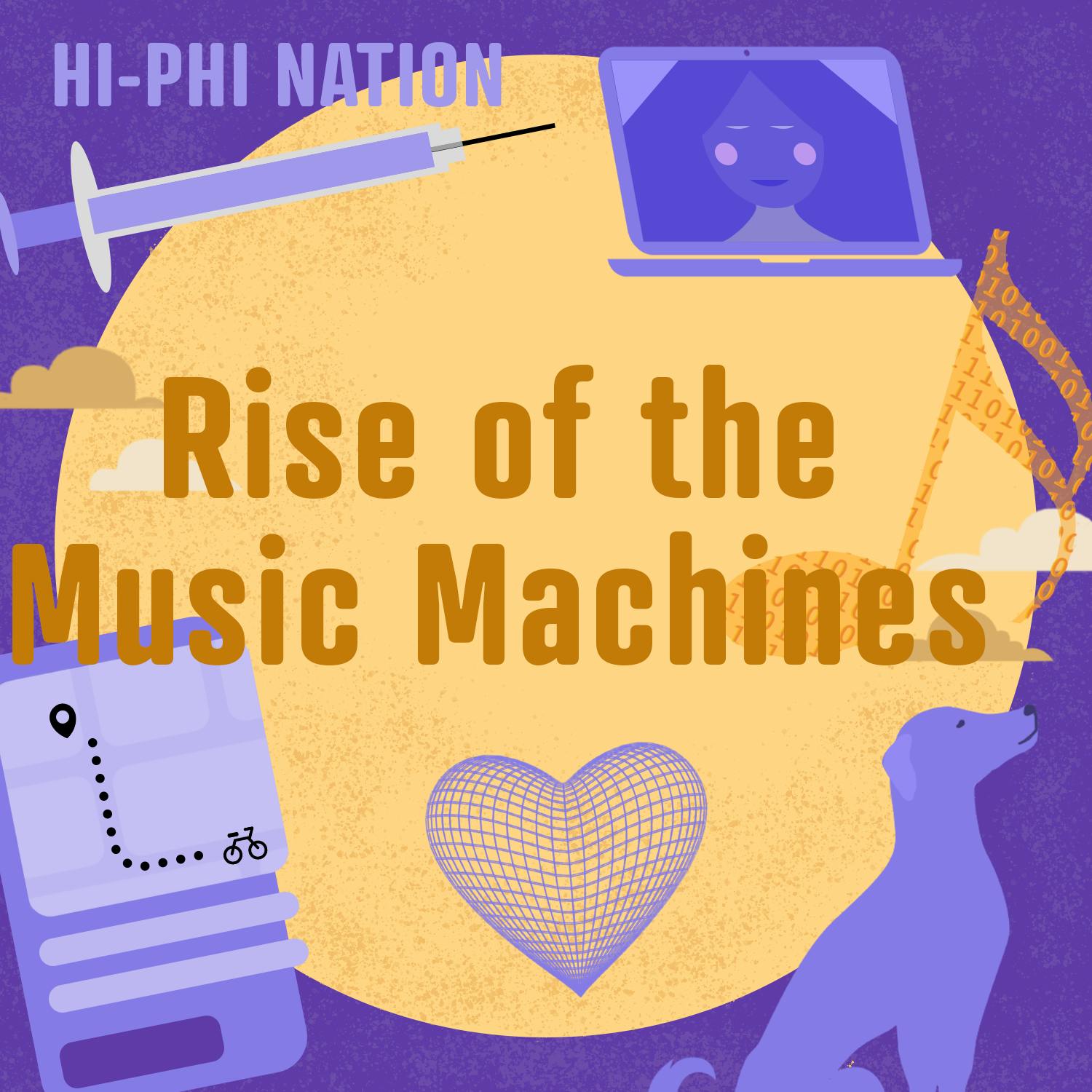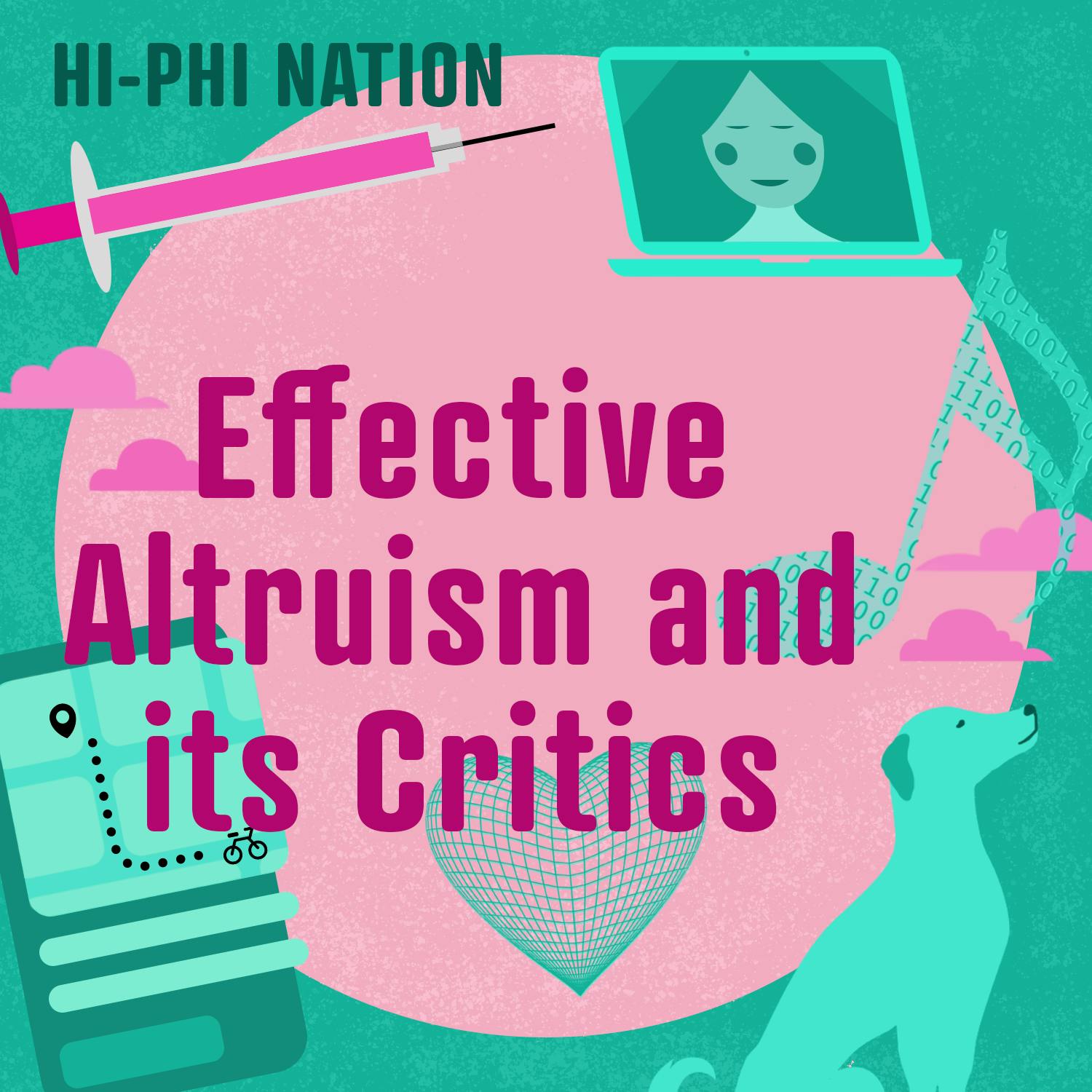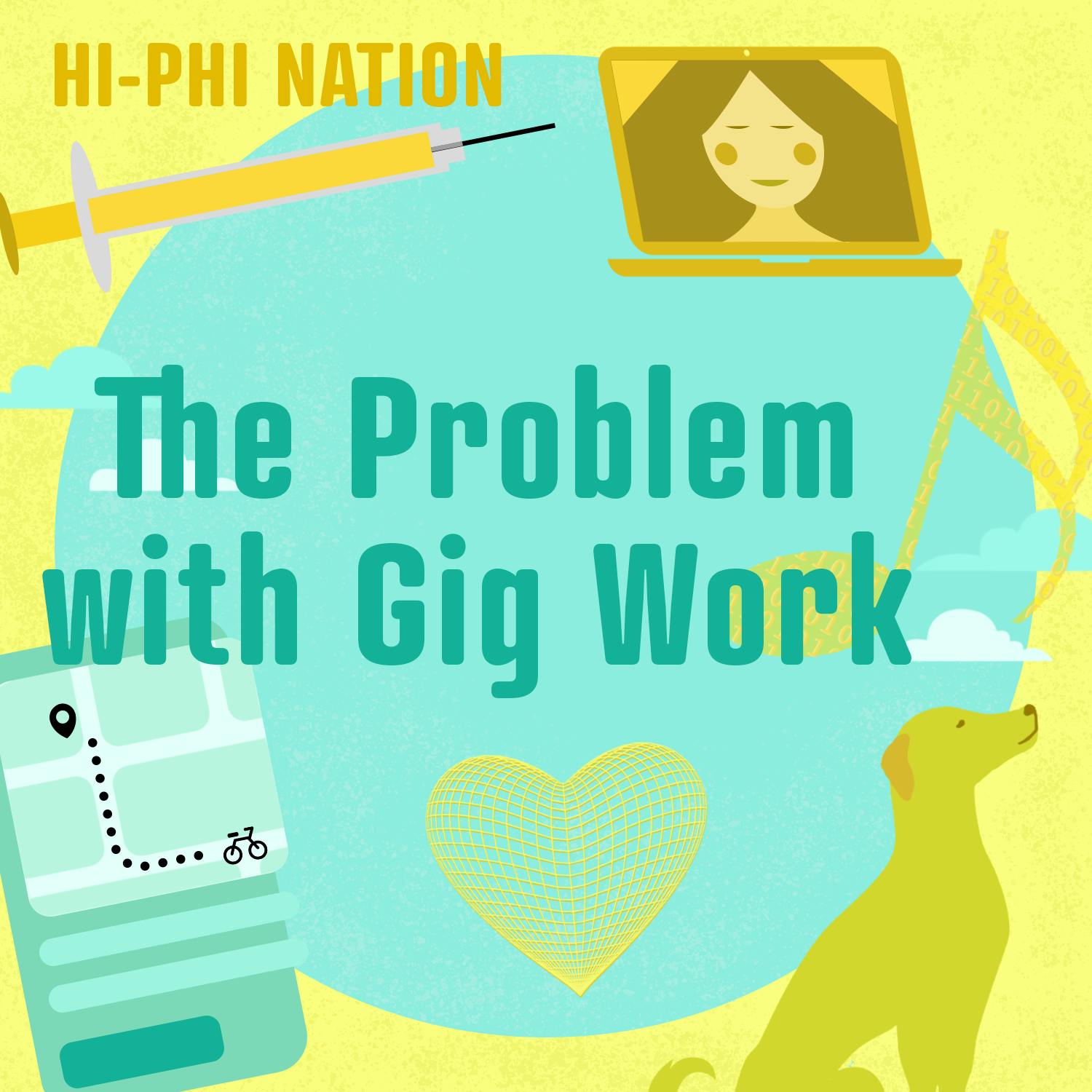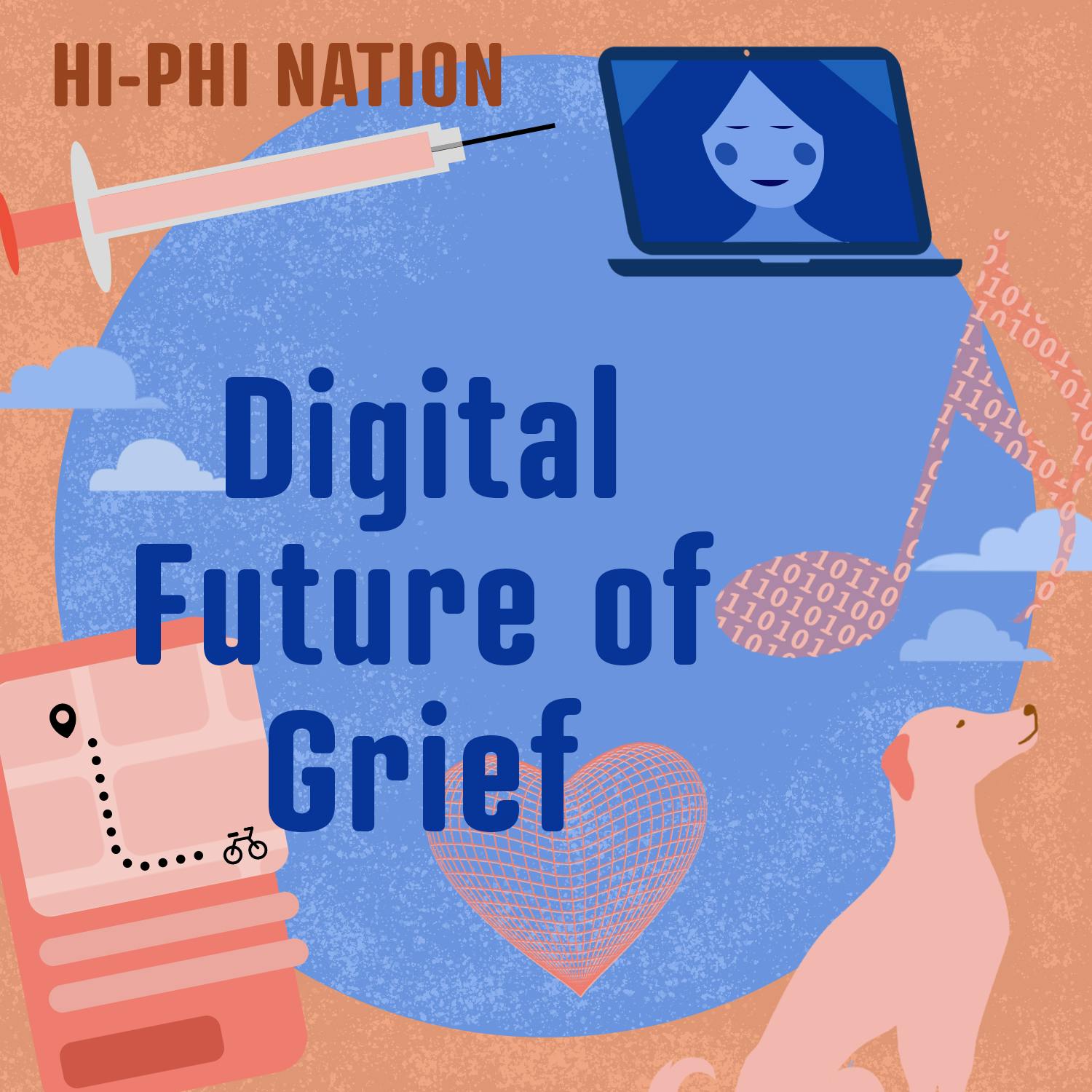Discover Slate Business
Slate Business

845 Episodes
Reverse
In March 1990, a story broke that shocked the nation: George H.W. Bush had banned broccoli from Air Force One. The frenzy that came next would change the fate of a vegetable—and maybe even alter the course of a presidency.
This episode was written by Olivia Briley and Josh Levin, One Year’s editorial director. One Year’s senior producer is Evan Chung.
This episode was produced by Olivia Briley and Kelly Jones.
It was edited by Joel Meyer and Evan Chung.
Derek John is Slate’s executive producer of narrative podcasts.
Merritt Jacob is senior technical director.
Join Slate Plus to get a special behind-the-scenes conversation at the end of our season about how we put together our 1990 stories. Slate Plus members also get to listen to all Slate podcasts without any ads.
Learn more about your ad choices. Visit megaphone.fm/adchoices
A middle-aged single dad in Chicago was outraged by all the cigarette billboards popping up in Black communities. In 1990, he picked up a paint roller and became an anti-tobacco vigilante. And he did it all under a secret identity.
This episode was written by Josh Levin, One Year’s editorial director. One Year’s senior producer is Evan Chung.
This episode was produced by Kelly Jones, Olivia Briley, and Evan Chung. It was edited by Joel Meyer and Derek John, Slate’s executive producer of narrative podcasts.
Merritt Jacob is our senior technical director. We had mixing help from Kevin Bendis.
Join Slate Plus to get a special behind-the-scenes conversation at the end of our season about how we put together our 1990 stories. Slate Plus members also get to listen to all Slate podcasts without any ads.
Learn more about your ad choices. Visit megaphone.fm/adchoices
On this show we explore three different AI and machine-generated music technologies; vocal emulators that allow you to deep fake a singer or rapper’s voice, AI-generated compositions and text-to-music generators like Google Music LM and Open AI’s Jukebox, and musical improvisation technologies. We listen to the variety of music these technologies generate, and two guitarists face off against an AI in improvised guitar solos.
Along the way, we talk to philosophers of music Robin James and Theodore Gracyk about what musical creativity is and whether machines are more or less creative than human musicians, and Barry gives his take on each of the technologies and what they mean for the future of musical creativity.
Learn more about your ad choices. Visit megaphone.fm/adchoices
Curtis is setting aside a large chunk of money to donate to charity, and it is up to us to persuade him where he should donate it. Luckily, philosophers, economists, and the nonprofit world have been thinking a lot about this issue in recent years. On this episode, effective altruism’s defenders and critics try to persuade Curtis of where he should donate. Who is the most effective in persuading an ordinary person as to the right way to donate to charity? And do the recent scandals involving effective altruism’s biggest donor implicate its philosophical foundations?
We start with arguments that you should always try to save the most lives possible, no matter where they are on the planet. We then hear a critic of that view, who argues that local giving can also be a good. We then turn to the view that we should save humans from extinction from threats like pandemics, nuclear war, and AI takeover. And finally, we hear from a critic of that view, who says we should not blow future risks out of proportion.
Guests include philosophers Richard Yetter-Chappell (Miami), Savannah Pearlman (Indiana), Shakeel Hashim (Center for Effective Altruism), and Seth Lazar (Australia National University).
Learn more about your ad choices. Visit megaphone.fm/adchoices
Willy and Heidi were both gig workers for Shipt, the fast-delivery app for groceries or same-day shopping. In 2020, they both realised: the pay algorithm had changed. Now, they couldn’t tell what a job would pay, or whether it would earn or lose them money. Instead of just taking it, they decided to fight back.
In the gig economy, companies like Shipt, Instacart, and UberEats all use black box pay algorithms to try and get workers to accept gigs but hide information from them to do so. Early in the pandemic, a rag tag group of gig workers tried to resist, and found someone at MIT to help them.
Host Barry Lam talks to them about the steps they took, and political philosopher Daniel Halliday (University of Melbourne) talks about the differences between wage labor and freelance labor and why he thinks the biggest gig economy companies are morally suspect. Then, we talk the future of regulation and worker-owned apps and delivery platforms.
Guests include Drew Ambrogi (coworker.org), Dan Calacci (MIT). This is an in-depth, longform version of a story originally done for WNYC studio’s Radiolab in their Gigaverse episode.
Learn more about your ad choices. Visit megaphone.fm/adchoices
When Justin’s mom was diagnosed with cancer, he knew he wanted to keep talking to her after she died. So together they made an AI version of her, training it on her speech patterns and memories. Now he is scaling his findings so that anyone can continue their relationships with loved ones after their deaths. Justin even believes this can one day lead to digital immortality.
Grief experts are only now dealing with bereaved people who create digital versions of their loved ones. We look at what they say about the phenomenon, and what philosophers think about whether the best AI version of a person can actually be them.
Co-produced with Alexandra Salmon, guests include Justin Harrison, CEO of You, Only Virtual, Dr. Mary-Frances O’Connor, and Dr. Debra Bassett.
Learn more about your ad choices. Visit megaphone.fm/adchoices
At the beginning of World War II, the greatest threat to the American war effort wasn’t the Nazis or the Japanese—it was runaway inflation. The man in charge of stopping it was the country’s “price czar,” Leon Henderson. In 1942, he controlled how much coffee ordinary people could drink and how many tires they could buy. Those rules made him a nationwide villain. But would they save the country?
One Year is produced by Evan Chung, Sophie Summergrad, Sam Kim, and Josh Levin.
Derek John is senior supervising producer of narrative podcasts and Merritt Jacob is senior technical director.
Slate Plus members get to hear more about the making of One Year. Get access to extra episodes, listen to the show without any ads, and support One Year by signing up for Slate Plus for just $15 for your first three months.
Learn more about your ad choices. Visit megaphone.fm/adchoices
In this Money Talks: Planet Money’s Mary Childs joins Felix Salmon to share what she learned reporting on how private philanthropy is trying to cope with the influx of need now that USAID is gone. They’ll get into the headaches and heartbreaks charitable organizations Givewell and ALIMA are experiencing after the loss of billions of dollars of humanitarian aid, the practical costs of saving lives, and what you can do to give effectively this holiday season.
Join Slate Plus to unlock weekly bonus episodes. Plus, you’ll access ad-free listening across all your favorite Slate podcasts. You can subscribe directly from the Slate Money show page on Apple Podcasts and Spotify. Or, visit slate.com/moneyplus to get access wherever you listen.
Podcast production by Jessamine Molli and Cheyna Roth.
Learn more about your ad choices. Visit megaphone.fm/adchoices
This week: The European Commission pushed back its timeline for all EV Europe. Felix Salmon, Elizabeth Spiers, and Emily Peck are joined by Bloomberg’s Global Automotive Editor Craig Trudell who helps understand how and why the global electronic vehicle transition is unraveling. Then, in a twist move, Truth Social parent company, Trump Media & Technology Group, merged with TAE Technologies, a fusion power company. The hosts and Craig unpack the motivations behind the deal for these strange bedfellows. And finally, don’t you just love a familiar, non-threatening protagonist who falls in love with a someone who embodies local virtue thanks to a Christmas adjacent inciting incident? You’re not alone! The hosts and Craig discuss the booming business of Hallmark movie tours in CT and the key factors that go into these wildly popular made-for-tv movies.
In the Slate Plus episode: What’s your dream gift?
Want to hear that discussion and hear more Slate Money? Join Slate Plus to unlock weekly bonus episodes. Plus, you’ll access ad-free listening across all your favorite Slate podcasts. You can subscribe directly from the Slate Money show page on Apple Podcasts and Spotify. Or, visit slate.com/moneyplus to get access wherever you listen.
Podcast production by Jessamine Molli and Cheyna Roth.
Learn more about your ad choices. Visit megaphone.fm/adchoices
While the A.I. boom has created a data center boom, rich guys are turning their computing dreams to the skies. With its impending IPO, SpaceX stands to lead the extraterrestrial data center boom. Will it work out for Elon and company?
Guest: Eric Berger, space reporter at Ars Technica
Want more What Next TBD? Subscribe to Slate Plus to access ad-free listening to the whole What Next family and all your favorite Slate podcasts. Subscribe today on Apple Podcasts by clicking “Try Free” at the top of our show page. Sign up now at slate.com/whatnextplus to get access wherever you listen.
Podcast production by Evan Campbell, and Patrick Fort.
Learn more about your ad choices. Visit megaphone.fm/adchoices
Even though the economy looks to be slowing down, prices are still rising. And while presidents don’t have a ton of control over the economy, there is something in Donald Trump’s power that could help reverse these trends.
Guest: Catherine Rampell, economics editor at The Bulwark and anchor at MS NOW.
Want more What Next? Subscribe to Slate Plus to access ad-free listening to the whole What Next family and across all your favorite Slate podcasts. Subscribe today on Apple Podcasts by clicking “Try Free” at the top of our show page. Sign up now at slate.com/whatnextplus to get access wherever you listen.
Podcast production by Elena Schwartz, Paige Osburn, Anna Phillips, Madeline Ducharme, and Rob Gunther.
Learn more about your ad choices. Visit megaphone.fm/adchoices
Whole Foods based its brand on a certain standard of quality—but there are some things that shoppers nevertheless want. Amazon believes it has found a way to keep the shelves looking like Whole Foods, while getting you the Tide PODS and Cheez-Its you deeply desire.
Guest: Peyton Bigora, staff reporter for Grocery Dive
Want more What Next TBD? Subscribe to Slate Plus to access ad-free listening to the whole What Next family and all your favorite Slate podcasts. Subscribe today on Apple Podcasts by clicking “Try Free” at the top of our show page. Sign up now at slate.com/whatnextplus to get access wherever you listen.
Podcast production by Evan Campbell, and Patrick Fort.
Learn more about your ad choices. Visit megaphone.fm/adchoices
This week: Disney has agreed to make a $1 billion equity investment in OpenAI along with a licensing deal setting limitations on the use of it’s IP on Sora. Felix Salmon, Elizabeth Spiers, and Emily Peck discuss this is a precedent-setting deal and how well OpenAI will actually be able to enforce the terms of the licensing agreement. Then, the hosts examine the likelihood of rumored tech IPOs that could be more than $1 trillion each, including Elon Musk' s SpaceX. And finally, Instacart’s variable prices signal a growing trend toward dynamic pricing for everything from eggs to soccer tickets. The hosts dive into the threat of companies using our personal data to set individual prices and what’s being done to prevent it.
In the Slate Plus episode: Musk and Bezos’s data centers head to space?
Want to hear that discussion and hear more Slate Money? Join Slate Plus to unlock weekly bonus episodes. Plus, you’ll access ad-free listening across all your favorite Slate podcasts. You can subscribe directly from the Slate Money show page on Apple Podcasts and Spotify. Or, visit slate.com/moneyplus to get access wherever you listen.
Podcast production by Jessamine Molli and Cheyna Roth.
Get 50% Off Monarch Money, the all-in-one financial tool at www.monarchmoney.com/SLATE
Learn more about your ad choices. Visit megaphone.fm/adchoices
The good news is voters are more persuaded by factual claims than emotional appeals or appeals to fear. But the bad news is that A.I. chatbots, trying to convince you, will keep making factual claims long after it runs out of actual facts.
Guest: David Rand, professor of information science, marketing and psychology at Cornell University
Want more What Next TBD? Subscribe to Slate Plus to access ad-free listening to the whole What Next family and all your favorite Slate podcasts. Subscribe today on Apple Podcasts by clicking “Try Free” at the top of our show page. Sign up now at slate.com/whatnextplus to get access wherever you listen.
Learn more about your ad choices. Visit megaphone.fm/adchoices
On today’s episode, host Kate Lindsay is joined by senior reporter at Bloomberg Businessweek, Amanda Mull, to talk about how the enshittification of online shopping came for Etsy. The platform used to be a thoughtful reprieve from the cheap, mass-produced products on Amazon, but now it’s plagued by a number of the same problems. With cheap junk and AI allegations abound, where can the Shein and Temu-haters go to actually find what they’re shopping for?
This podcast is produced by Vic Whitley-Berry, Daisy Rosario, and Kate Lindsay.
Learn more about your ad choices. Visit megaphone.fm/adchoices
On this week’s episode, Gabfest old friends Steve, Julia, and June Thomas convene on two showbiz works of midlife retrospection and regret: the new film Jay Kelly and Stephen Sondheim’s Merrily We Roll Along. The former, directed by Noah Baumbach, stars George Clooney as the titular movie star looking back on his life while on a European train picaresque. The latter was a legendary flop for Sondheim, had a triumphant Broadway revival starring Jonathan Groff, Daniel Radcliffe, and Lindsay Mendez, and now has arrived at movie theaters.
In our third segment, the panel turns to another showbiz saga full of bitter regret: the fight to acquire Warner Brothers Discovery. Joined by writer and Hollywood watcher Mark Harris, they untangle the fight between Netflix and Paramount to outbid each other for the legacy film studio—and what it all has to do with Trump and the future of movie-going itself.
In an exclusive bonus episode for Slate Plus subscribers, it’s back to join the Joined in our recap discussion of Pluribus episode 7 “The Gap.”
Act now, there’s still time to leave us a voicemail with your burning cultural queries for our annual call-in show by calling us at 347-201-2397.
Learn more about your ad choices. Visit megaphone.fm/adchoices
In this Money Talks: Elizabeth Spiers is joined by Tim Wu to discuss his new book, The Age of Extraction, which breaks down how we ended up with an economy dominated by Big Tech and its purely profit-seeking mindset. They’ll get into the slow erosion of optimism around the internet as a democratizing force, the state of antitrust enforcement in America, and what it might look like if we stop allowing big companies to nickel and dime the public unchecked.
Join Slate Plus to unlock weekly bonus episodes. Plus, you’ll access ad-free listening across all your favorite Slate podcasts. You can subscribe directly from the Slate Money show page on Apple Podcasts and Spotify. Or, visit slate.com/moneyplus to get access wherever you listen.
Podcast production by Jessamine Molli and Cheyna Roth.
Learn more about your ad choices. Visit megaphone.fm/adchoices
Donald Trump—or at least the tech guys who have his ear—is ready to clear the regulatory runway for A.I. but other Republicans aren’t too sure. Can he bring them around? Or will the bubble burst first?
Guest: Gerrit De Vynck, tech reporter for the Washington Post.
Want more What Next TBD? Subscribe to Slate Plus to access ad-free listening to the whole What Next family and all your favorite Slate podcasts. Subscribe today on Apple Podcasts by clicking “Try Free” at the top of our show page. Sign up now at slate.com/whatnextplus to get access wherever you listen.
Learn more about your ad choices. Visit megaphone.fm/adchoices
This week: Netflix has agreed to acquire Warner Bros. Discovery. Felix Salmon, Elizabeth Spiers, and Emily Peck are joined by the New York Times’ Nicholas Kulish to discuss the ricochet effect of such a massive media merger on the film and television industries. Then, Michael and Susan Dell have announced a $6.25 billion donation to the so-called “Trump accounts” for children. Nick, who has been covering the story, helps the host unpack the motive behind this unusually massive donation and what these accounts represent to various parties. And finally, The Guardian has revealed wide-spread and insidious consumer-fraud at Dollar General and Family Dollar. The hosts and Nick dive into how the massive dollar store chains are ripping off their already financially stretched customers.
In the Slate Plus episode: Is Zootopia the future of cinema?
Want to hear that discussion and hear more Slate Money? Join Slate Plus to unlock weekly bonus episodes. Plus, you’ll access ad-free listening across all your favorite Slate podcasts. You can subscribe directly from the Slate Money show page on Apple Podcasts and Spotify. Or, visit slate.com/moneyplus to get access wherever you listen.
Podcast production by Jessamine Molli and Cheyna Roth.
Learn more about your ad choices. Visit megaphone.fm/adchoices
A tech mogul who made bank from Paypal with his Stanford buddies and has endeared himself to right-wing politicians and enriched himself the same way? No not him; this one’s South African..no, not him either.
Guest: Ryan Mac, reporter for the New York Times.
Want more What Next TBD? Subscribe to Slate Plus to access ad-free listening to the whole What Next family and all your favorite Slate podcasts. Subscribe today on Apple Podcasts by clicking “Try Free” at the top of our show page. Sign up now at slate.com/whatnextplus to get access wherever you listen.
Podcast production by Evan Campbell, and Patrick Fort.
Learn more about your ad choices. Visit megaphone.fm/adchoices
















Felix S. sounded so confident in his view of how health insurance is supposed to contain runaway costs for the system as a whole, yet I didn't hear him give a shred of evidence to support this- it made him sound like a corporate HR rep.
I'm waiting for the next episode, when do you release it?
At the time disaster capitalism is murdering people, you should be ashamed of your neoliberal flavor of the month. Be gone.